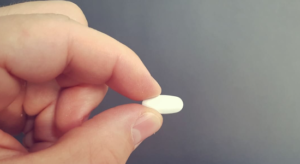Supporting a Friend: How to Help a Teenager with PTSD in Penrith

Mental trauma, often invisible but deeply impactful, can stem from various sources such as abuse, accidents, or natural disasters. Unfortunately, this profoundly affects an individual’s emotional well-being. As such, post-traumatic stress disorder (PTSD) can affect any individual who has witnessed or experienced a traumatic event, including teenagers.
Understanding how to support a friend dealing with PTSD is crucial to their recovery and emotional well-being. This guide provides practical advice on helping a teenager navigate the complexities of PTSD, highlighting when it might be beneficial to consult a PTSD psychologist in Penrith.
Recognise the Symptoms
PTSD can manifest differently in teenagers than it does in adults. Symptoms might include sudden mood changes, withdrawal from friends and activities they once enjoyed, aggressive behaviour, or difficulties with concentration and sleep. Recognising these signs is the first step in providing support. It’s important to remember that these behaviours are not personal but rather manifestations of their internal struggle.
Listen Without Judgment
One of the most powerful things you can do is simply listen. Let your friend share their feelings and experiences at their own pace without fear of judgment. This might mean sitting with them in silence or encouraging them to talk when ready. Listening is not about fixing their problems—it’s about showing that you care and understand or are trying to.
Encourage Professional Help
While support from friends and family is vital, professional help is often essential for dealing with PTSD. Encouraging your friend to see a PTSD psychologist in Penrith can be a delicate topic, so approach it with care and sensitivity. Explain that seeking help is a sign of strength, not weakness, and that a professional can provide guidance that is beyond what friends or family can offer.
Maintain Normalcy
Try to keep routines as normal as possible. While some adjustments might be necessary to accommodate your friend’s needs, maintaining a semblance of normalcy can help them feel more secure and less isolated. Continue to invite them to activities they enjoy and include them in plans even if they sometimes decline to participate.
Promote Physical Health
Physical activity can significantly impact mental health, reducing symptoms of anxiety and depression, which can accompany PTSD. Encourage activities such as walking, cycling, or team sports in Penrith—whatever your friend enjoys most. Additionally, encourage good eating and sleeping habits, which can also help improve their overall well-being.
Be Patient and Consistent
Recovery from PTSD is a journey that often involves setbacks. Patience and consistency from friends are invaluable during this time. Be there for your friend consistently, even if their progress seems slow or they have days when they struggle more than usual. Your steady presence reminds them they are not alone and that there is hope for better days.
Learn About PTSD
Educating yourself about PTSD can help you understand what your friend is going through and how best to support them. Knowledge can empower you to handle difficult situations more effectively and communicate compassionately. It also shows your friend that you care enough to learn about their condition, making them feel more supported and understood.
Supporting a friend with PTSD requires empathy, patience, and a willingness to stand by them through their recovery. It’s about listening, encouraging them to seek help from professionals like a PTSD psychologist in Penrith, and helping them maintain a healthy lifestyle. Remember, while you can offer support, professional help in Penrith is crucial for effective treatment.







